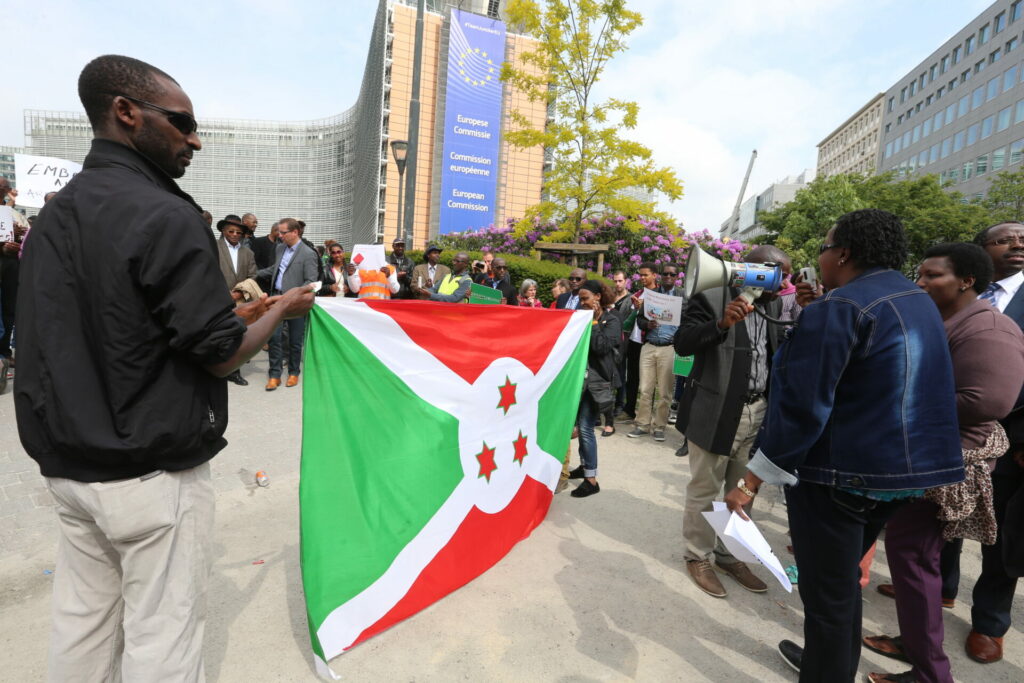The Belgian Foreigner’s Office recorded 263 requests for protection for people coming from the central African nation of Burundi in July, up from just 34 in May and 112 in June, Belgian newspaper La Libre Belgique reports. This represents an eightfold increase over the space of three months.
Burundi, a former Belgian colony, is now the third most represented country among asylum seekers, behind Afghanistan and war-torn Syria and ahead of Palestine and Eritrea. Belgium, it appears, is the chosen destination for people fleeing Burundi, as this increase has not been reported in other European countries.
Fleeing a desperate situation
This wave of asylum applications is likely driven by the unstable situation with Burundi, aggravated by climate change. Burundi is the poorest country on earth, as ranked by gross domestic product (GDP) per capita.
UNICEF says that the country is currently suffering from several climate-related disasters such as severe droughts in the Kirundo area and severe flooding across the rest of the country. UNICEF facilities treated 21,378 children suffering from severe acute malnutrition in the country this year.
The country has previously suffered from an 11-year civil war which killed an estimated 300,000 people. The Burundian government, under Évariste Ndayishimiye, has ramped up the number of human rights abuses, with government critics allegedly facing arrest, murder, or disappearance at the hands of the government apparatus.
At the heart of recent unrest has been a critical lack of fuel, which has pushed the Burundian economy into meltdown. These combined factors may explain the recent increase in numbers of Burundians entering Belgium.
According to Dirk Van den Bulck, Belgian Commissioner General for Refugees and Stateless Persons, Burundians use unorthodox loopholes to travel from the country to the rest of Europe.
“A route seems to have been made through Ethiopia, Turkey, and finally Serbia. To better understand this, we must remember that Burundian nationals do not need a visa to enter Serbia. Once in Serbia, they enter European territory via Romania,” the commissioner told La Libre Belgique.
Burundi already has a large, well established community in Belgium, and so many choosing to flee the country opt to rejoin family or friends here in Belgium. “Exiles generally seek to reach a country where they can meet up with their former compatriots. This phenomenon can be observed for many nationalities,” Van den Bulck explained.
Belgian hospitality
Belgium is statistically very hospitable towards those fleeing Burundi. Last year, 96% of Burundian asylum cases were accepted by the Belgian government, an extremely high successful rate compared to similar asylum applications from different nationalities and in neighbouring countries.
“The Office for the Commissioner has meanwhile changed its recognition policy and the Aliens Litigation Council (the appeals body for foreigners’ rights) has also changed its jurisprudence, which was previously rather favourable to granting status to a foreigner,” Van den Bulck noted.
Related News
- Decolonisation of Brussels focusses on monuments, sites and buildings
- ‘Reparations owed’: Experts deliver special report on Belgium's colonial past
All these factors have ultimately encouraged Burundians to travel to Belgium. But this may be soon to change. The influx of Burundians arriving into Belgium in recent months is likely to cause a crackdown on the asylum cases, leading to a greater number of refusals, and ultimately, deportations.
Van den Bulck predicts that, during the Autumn months, the Belgian government will start a discussion campaign to reduce the number of central African migrants attempting to reach Belgium.
There have previously been dissuasion campaigns used to curb the number of Albanians attempting to make protection cases within Belgium. Likewise, in 2020, there was a large surge in Brazilians attempting to claim status in Belgium. There is no reason to believe that the sudden influx of Burundians will last any longer than other migratory waves.

